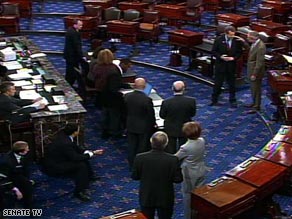
By Dr. Boyce Watkins
I’ll start by saying that I love Tavis Smiley and have a tremendous amount of respect for him. Ok, I’ve said it, and I meant it. I hope you believe me as I write.
Tavis Smiley’s work in the Black community is critically important. I encourage Tavis, in the midst of such work, to remember that there is a difference between being an intelligent guide to enlightenment and being downright self-righteous. Tavis has a way of putting political leaders “on blast” for not showing up at his forums. When he held a debate for the Republicans in the 2008 Presidential Primaries, there were several Republican presidential candidates who chose not to attend. I understand being upset about this, because the Republican Party has paid dearly for its racism and ignorance of the needs of the Black community. Smiley responded to the Republican snub by putting the name of the candidate on the podium even if they were not there. This was a clear reminder to those in the audience that the leader “doesn’t care about issues in the Black community.”
When holding the State of the Black Union of 2008 (some confuse it with the State of Black America, issued each year by the Urban League), Smiley again invited as many political leaders as he could find, with Hillary Clinton being his star for the day. Then Senator Barack Obama, in the middle of a heated battle for Democratic delegates in Texas and Ohio, said that he could not attend the forum. Instead, he offered his wife Michelle to attend in his place. That’s when the drama got heated.
Tavis, appearing to be offended by Obama’s slight toward his conference, proceeded to nibble away at Obama’s heels every morning on The Tom Joyner Morning Show. The segments started with “he-say, she-say”, in which Tavis claimed that no one from the Obama camp offered Michelle up for attendance. But even if they had, Tavis claimed that no spouse of a presidential candidate would be acceptable for the conference, even Bill Clinton.
I must admit that I felt Tavis was doing a “Karl Rove” on the truth. Smiley’s snub of Michelle Obama was also a slap in the face of Black women everywhere who have tremendous respect for Michelle. Finally, Smiley’s words and actions bordered on petty and angered the millions of African-Americans who’d come to believe that Barack Obama could walk on water. While I’ve never felt that Obama could walk on water, I certainly did not understand Smiley’s confused obsession with Obama’s behavior. Smiley’s comments toward the Black presidential candidate reminded me of the same double standard I can sometimes get as a Black professor. You may have Black students who feel a certain degree of comfort with you, and thus empowered enough to attack you more than they would a White professor with whom they have no prior social affiliation. These situations can be nightmares, as they reflect problems with the collective self-esteem of the Black community, which leads us to feel that attacking and hurting one another is easier, and thus more satisfying than working together to fight Black oppression. In other words, Smiley was reflecting the same sentiment held by Black men who shoot one another on the street, but stand in fear of the racism in White America. Aaron McGruder, creator of the popular cartoon, “The Boondocks”, would refer to this as “a nigger moment.”
Phones were ringing off the hook, as I had friends from California to New York calling and asking “What’s wrong with Tavis?” I had no idea, since I don’t know Tavis personally. However, because we run in the same circles, I know plenty of people who know plenty of people who know Tavis. One of my great and respected friends, Kyle Bowser, is one of Tavis’ best friends, and Kyle rang my phone the day after I made my comments. Going through the blogs of other Black scholars, I had a chance to see their reactions. Melissa Harris-Lacewell at Princeton University, an intelligent (though somewhat elitist) scholar, happened to be incredibly poignant in her critique of Tavis Smiley’s behavior.
Melissa angered Tavis by writing a column that asked ”Who died and made Tavis King?”. I wasn’t as direct in my critique of Tavis, but I did have some strong words for him. I did not want to deliver any commentary on the Tavis via the major networks, since I honestly feel that there are some conversations Black folks need to have behind closed doors. But given that we get nearly 100,000 Black readers per week on our website YourBlackWorld, I felt this to be a fitting venue to let the world know how I feel.
I issued a statement agreeing with my friend Roland Martin at CNN, who felt that Tavis was out of line by making such a strong demand on Obama at such a critical time. Yes, Hillary Clinton showed up in spite of being on the same campaign trail, but the fact was that Hillary was well positioned to win in the upcoming battlegrounds states, Texas and Ohio. Also, Hillary Clinton needed to regain the ground in the Black community that was lost when her husband Bill shot himself in the foot. The words out of Bill Clinton’s mouth were so vile, that his own “ghetto pass” was revoked immediately. Clinton had compared Barack Obama to Jesse Jackson, implying that he was simply a Black presidential candidate with no chance to win White voters. While Jesse ran a great campaign, the notion that Obama’s fate would be similar to his own was disappointing for many Black people to hear. Clinton was no longer one of us, and he certainly was not the “first Black president” anymore.
I also felt that Tavis should have been more careful about being too critical of Obama in light of the fact that he was accusing Barack of doing some things that he himself had been doing. For example, Tavis claimed that he was not going to give Obama a “ghetto pass” just because he was Black. Rather, he would challenge him and question him like he would anyone else. First, Tavis’ words presumed (self-righteously) that he knows what is best for Black folks and we cannot make this determination ourselves. No one gives the “ghetto pass” to Ward Connerly (the guy in California fighting against Affirmative Action) or Condoleeza Rice, so the idea that Black candidates get votes only because they are Black is simply ridiculous. A “ghetto pass”, should such a pass exist, must be earned, and Obama had earned the love, trust and support of the Black community. To presume that people were supporting him just because he is Black is an insult to the collective intelligence of the Black community.
Secondly, Tavis himself had been long receiving the very same “ghetto passes” that he felt Black America was unfairly bestowing upon Obama. As powerful and revolutionary as Tavis may have sounded on The Tom Joyner Morning show, the fact that you hear “This was brought to you by Walmart” at the end of each segment reminds you that the message has been diluted by corporate sponsorship. No great Black revolutionary in American history has ever been brought to you by McDonald’s, Walmart, Wells Fargo, or any of the other corporations that sponsor Tavis’ forums.
Additionally, there is a clear reality in the life of Tavis Smiley, one that he cannot ignore: the Covenant with Black America, The State of the Black Union Conference, The “Pass The Mic” Tour, and everything else Tavis has done was created with the express objective of obtaining revenue and profitability for his corporate sponsors. Tavis has sold himself (and I do not use the word “sold” in a negative sense) to White American corporations as the broker of Black leadership. He is the man that many corporate executives believe they can go to in order to reach the African-American masses. We are the drugs, and he is the pusher: White corporate America represents the group of addicts getting high on the profitability of Black consumption.
As a Finance Professor, I must say that I see nothing wrong with the Tavis Smiley business model. I am not here to say that Tavis has “sold out”, for I don’t believe he has. We all sell something in order to make a living, and even the concept of “selling out” presumes that one has managed the thin line between making a profitable trade, versus giving up something of tremendous value. The problems with the Tavis Smiley business model arise when such a business model is pursued carelessly or selfishly. I do not accuse Tavis Smiley of being careless or selfish. However, his attacks on Senator Barack Obama, none of which were thrust on Senator Hillary Clinton, smelled of self-interest from a man who appeared to feel slighted that Obama jumped his place in the line of great Black leadership.
I felt sorry for Tavis after seeing the reactions of our readers on YourBlackWorld. Hundreds of emails and comments were coming in every day, with many readers claiming that they were once Tavis Smiley fans, but not anymore. Overnight, Tavis went from being incredibly popular, to becoming the Milly Vanilly of social commentary. I can’t help but wonder what happened behind closed doors, as I am sure his publisher became concerned that he could no longer sell books. His corporate sponsors were surely aware of the fact that he was not in control of the Black audience they were buying from him. I am willing to bet that his life was a mess, at least for a while.
I hope this year’s State of the Black Union Conference is a bit more balanced. Tavis is a good brother who deserves our respect. But it is my greatest hope that he learns the difference between balanced critiques and flat out “haterology”. I do a lot of critiquing, but when it comes to Obama, I want him to succeed. I sincerely hope that Tavis wants the same.
This is an excerpt from the book “Black American Money” by Dr. Boyce Watkins, to be released in April 2009. For more information, please visit www.BoyceWatkins.com.












